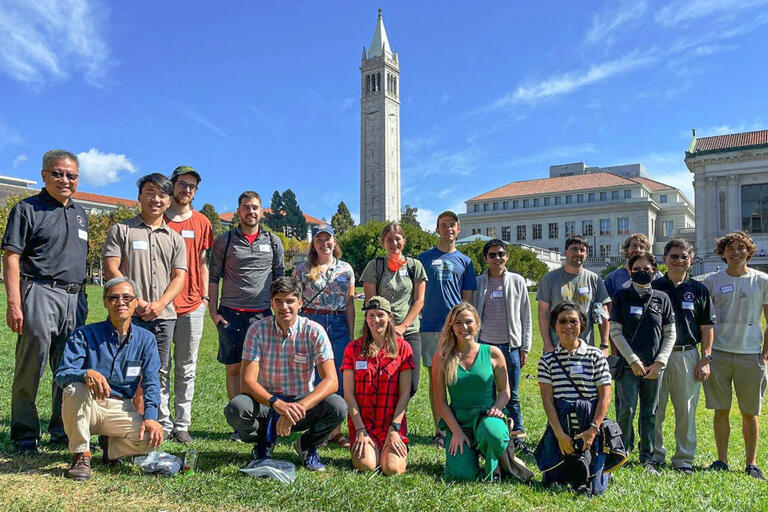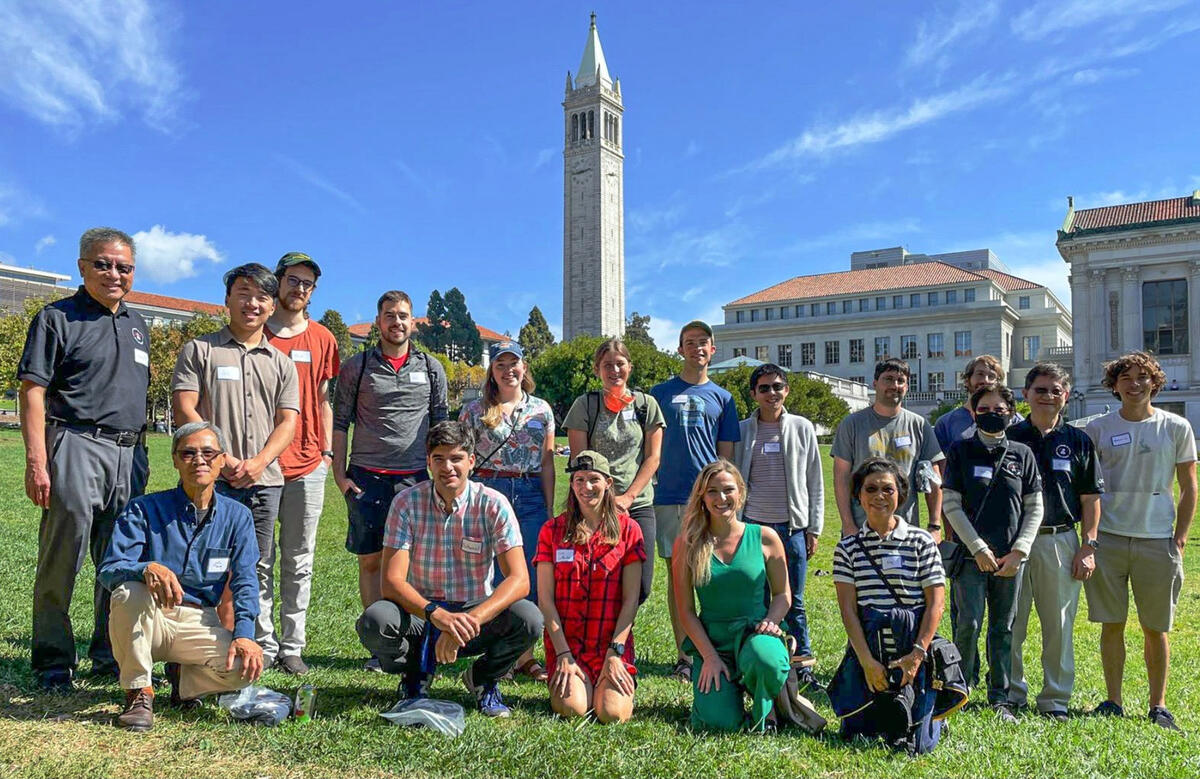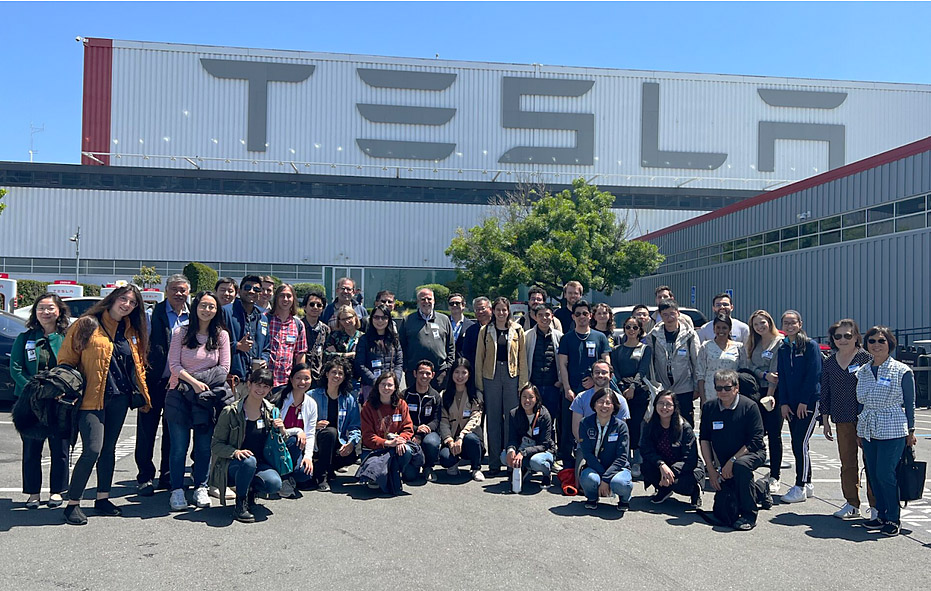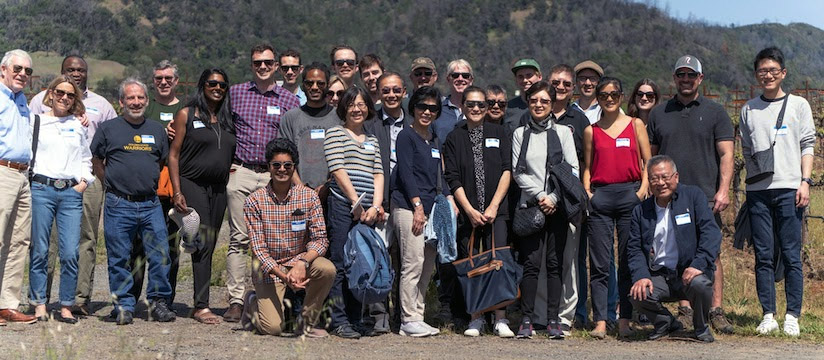Chu had been pondering his place in the world, wanting to leave a positive legacy on humanity’s well-being far into the future. Chu knew his vision would need to involve many people, but he was unsatisfied with the established pathways for donors. He decided to start his own nonprofit instead.
Hearts to Humanity Eternal — shortened to H2H8 (the 8 representing the infinity symbol) — is the radical experiment that formed in 2020 out of Chu’s efforts to rethink what a grantmaking organization can be. H2H8 offers research grants of $3,500 to $10,000 to students at UC Berkeley’s Division of Mathematical & Physical Sciences and College of Engineering who are studying big questions with potentially far-reaching benefits for society. In addition, the organization offers a robust engagement program focusing on community building, training, teamwork, and mentorship.
“What we are ultimately aiming to do is build a growing, inclusive, collaborative community of philanthropists and STEM researchers to advance humanity,” said Chu, using the acronym for science, technology, engineering, and math. “We believe that science is one of the more direct ways to help humanity survive the future.”
To help him run the organization, Chu recruited a family friend, Stephen Kwan, and two former high school classmates, Chung Chan and Terence Chu (no relation), as founders. Bill Chu, Chan, and Kwan gathered in June for lunch at the Faculty Club on the Berkeley campus with five students they funded. While all grant recipients enter H2H8’s Explorer program, the organization asks several to serve as Guardians, who mentor other students, host group lunches, and plan community-building events.
The H2H8 founders had just delivered a check for over half a million dollars to the university for the 2023 class of grantees. They were feeling bullish about the new cohort and were eager to speak with the current Guardians about improving the program for the next school year.
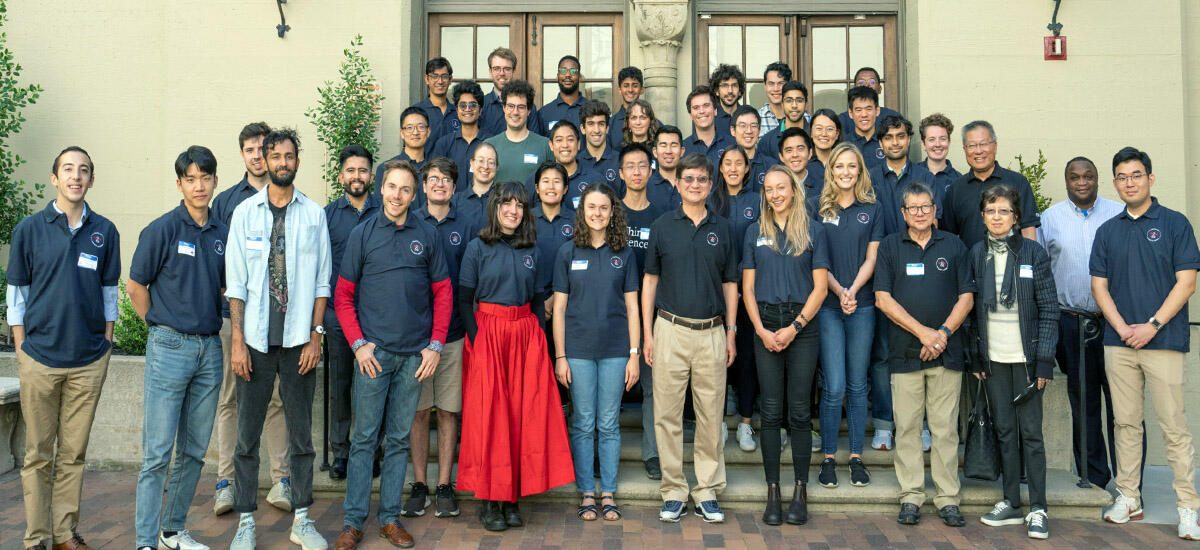
H2H8 members pose with grantees in front of a building on UC Berkeley's campus.
The H2H8 team is committed to reassessing their operations and outcomes, frequently polling Berkeley staff and students about their experience. The first year, they didn’t receive many applications. They retooled, returned, and recruited 30 scholars. Word of mouth spread, and now H2H8 is unable to fund all the applicants, though candidates are encouraged to apply again. As of this fall, H2H8 has now sponsored 135 students.
Berkeley was a natural launching pad for H2H8. For starters, the founders each have personal connections: Bill Chu and Chan are engineering alums; Kwan was a visiting scholar; and all their wives graduated as Cal Bears. They also appreciated Berkeley’s ability as the No. 1 public university in the world to attract creative thinkers from a broad range of backgrounds.
“I found that the students here are much more diverse, knowledgeable, and open, and they think a lot more about humanity,” said Kwan, who studied and taught management and computer science courses at several universities.
Supporting students with financial needs was an additional consideration for the H2H8 founders. Kwan recounted working as a dishwasher and chef at Berkeley restaurants. Bill Chu, a scholarship recipient himself as a graduate student, noted that he cut his expenses by condensing his undergraduate studies to three years. They know the transformative effect a college education can have on students who don’t come from wealth. And, unlike most federal programs, H2H8’s research grants are available to anyone, regardless of citizenship status.
“I’ve spent over three decades in Silicon Valley working on high-tech projects, so I look back and think I had a pretty rewarding experience,” said Chan. “I credit it to Berkeley. When I came as an international student, we paid $500 a quarter, which is very different from what our state students pay these days! I wanted to pay back the university for the good education I received.”
Some of their grantees are already making waves. Sajant Anand, a graduate student in physics who attended the Guardian lunch in June, had co-authored a study earlier that week that demonstrated a milestone achievement: a new technique(link is external) enabling current quantum computers to compete with classical supercomputers in performing accurate calculations. Anand is now working with the other researchers to take the experiment’s lessons and improve quantum and classical computing capabilities.
Despite having been quoted in The New York Times(link is external) only a few days earlier, Anand was humble about the attention. He explained the experiment’s setup at lunch as Massimo Pascale and Emma Turtelboom, graduate students in astronomy, nodded along. Both Pascale and Turtelboom have physics backgrounds — as is often the case in astronomy — and had studied quantum mechanics. The scene demonstrated another intended benefit of the program: breaking down silos between scientific disciplines.
Turtelboom, who is using her grant to subsidize her travel to an international conference, said it was nice to have an in-person connection with fellow students after the pandemic. It had been challenging to meet students outside her department before joining H2H8.
Guardians and Explorers meet weekly for a sponsored lunch that draws up to 30 people. In October, H2H8 will host a welcome lunch for the new cohort with networking, games, and prizes. The nonprofit also organizes educational outings once a year — most recently a tour of a Tesla factory.
Sometimes the funders learn from the students. At lunch, Guardians offered technological advice that could aid the organization’s operations. H2H8 directors are building a YouTube presence to archive educational presentations given by students through a skills development and interdisciplinary collaboration program managed by Guardians. Though it can be a lot of work, the philanthropists enjoy meeting the faculty-nominated candidates and reviewing their research projects during the grant application process.
“I found the interviews with the applicants to be most rewarding,” said Terence Chu. “I found them mature and very dedicated to their field of study. I can see the promising future in them.”
“Meeting the students is a fantastic experience for me,” said Kwan. “They make me feel like I’m doing something good.”
Ultimately, H2H8 aims to grow to other universities beyond Berkeley. For now, they’re focused on creating a sustainable organization. The founders built H2H8 to outlive themselves. They hope that today’s students become the success stories of tomorrow, staying involved with the organization to “carry the torch forward,” as Chan put it.
Bill Chu used the Rotary Club as an example, an organization that grew from a few members in Chicago to a global network of millions.
“We have, to some extent, proven that we can start a very useful group,” said Bill Chu. “I’m proud of these Explorers because it’s a very good community, and if we can do it successfully in Berkeley, eventually, it can happen at any university.”




